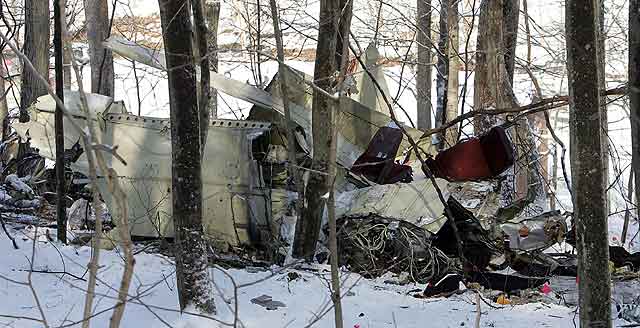Polish Investigators Leave Smolensk Unsatisfied
On 21 September, MAK released the last set of documents it planned to turn over to Polish investigators. Edmund Klich, the Polish representative to the Russian-based Interstate Aviation Committee (MAK), left Russia on Thursday of last week, but not before delivering a six-page letter outlining his concerns regarding still missing materials and disagreements between the findings of the Polish and Russian investigators. In it he specified his dissatisfaction that his team had still not received original recordings from the control tower at the North Smolensk Airbase (they were only given a written transcript), or documentation of the technical equipment at the airport and the conclusions drawn from 15 April test flights conducted there.
Klich believes information on the airport and the procedures followed by its personnel might help determine circumstances that could have affected the accident. Klich has already voiced his opinion that he believes there were several causes of the 10 April crash, among them, erroneous decisions, violated procedures, atmospheric conditions, psychological factors, cooperation of the crew, and the organisation of the flight. He feels, however, that more clues might be found in the missing information.
The classification of the flight as military or civilian could be determined by the designation of the former airbase and how its personnel were treating the landing. The official classification of the flight would aid in assigning responsibility for the decision to land given such poor weather conditions. For international civilian flights, the crew or someone on board would bear all the responsibility for landing the aircraft. For military flights, the control tower has the last say in whether or not to allow a plane to land.
The Russians seem to have deemed the presidential flight civilian in nature, which may be why they are not providing the missing information, as it might then be considered irrelevant to the investigation. Because the purpose of the flight was to carry government officials to a commemoration ceremony for victims of the Katyn massacre, the flight could be considered civilian in nature. The Polish investigators, however, point to the fact that according to the official flight plan, the flight designation PLF 101-I-M ended in an “M”, denoting it was a military flight. The plane used was also an old military plane, the TU-154 M. Furthermore, they point to the fact that the North Smolensk Airbase no longer met international standards of a civilian airport and was operating as a military airbase.
Another point of contention arose from the fact that the Russians had left the airplane debris at the North Smolensk Airport uncovered, exposed to the weather for months now, and unsecured from wandering people and animals. Poland has repeated that because the aircraft is Polish property, it should be returned to Poland and protected by some sort of tent in the interim. Such conflicts may jeopardize the thawed relationship between the two nations. Diplomatic ties were already strained last week, when Poland refused to extradite Chechen separatist leader, Akhmed Zakayev, who was apprehended in Warsaw while attending a conference on the situation in Chechnya.
Aware of the fragile relationship between the two countries, Klich clarified that the Polish investigators were leaving Russia in order to give MAK space and time to draft a final report on its findings. MAK plans to deliver the report to Poland within the next few weeks. He hopes the report will address the concerns he outlined in his letter. Once the report is submitted to Polish investigators, they will have 60 days to review and comment on it. The two sides will then review each other’s notes and co-write a conclusive report.

